Did you know that crooked carrots are reshaping the way we view and appreciate vegetables? These unique veggies have gained popularity in recent years, not only for their whimsical appearance but also for their impact on sustainable agriculture. In this guide, I’ll take you on a journey into the fascinating world of crooked carrots and their role in promoting farm-to-table practices and sustainable farming methods. Get ready to discover the charm of these quirky veggies and their contribution to a greener future.
- Crooked carrots are unique vegetables that have captivated the attention of farmers, chefs, and consumers.
- They are grown locally and celebrated for their unconventional shapes and sizes.
- Sustainable agriculture plays a vital role in the production of crooked carrots, ensuring they are grown in an environmentally friendly way.
- These quirky veggies add a whimsical touch to vegetarian cuisine and serve as a conversation starter.
- Crooked carrots are packed with essential nutrients and can be used in a variety of culinary dishes.
The Whimsical World of Crooked Carrots
Crooked carrots have taken the world of fresh produce by storm, captivating farmers, chefs, and consumers alike. These unique vegetables are locally grown and often found at farmers markets, where they garner attention for their unconventional shapes and sizes. The popularity of crooked carrots not only showcases the growing demand for fresh, local vegetables but also reflects our desire to connect with the natural world through our food choices.
When it comes to crooked carrots, their whimsical appearance adds a touch of charm to every meal. Their quirky shapes and sizes make them stand out on the plate and open up a world of culinary creativity. Chefs love using crooked carrots as they bring a playful element to dishes, delighting both the eyes and taste buds. Whether roasted, sautéed, or used in salads, crooked carrots provide a unique twist to classic recipes.
“Crooked carrots bring a sense of joy and wonder to the kitchen. Their unconventional shapes inspire creativity and encourage us to embrace imperfections in both food and life.”
One of the remarkable aspects of crooked carrots is their connection to the local community. These vegetables are often grown by small-scale farmers who prioritize sustainable agriculture and environmental stewardship. By supporting local farmers, we not only contribute to the livelihood of these passionate individuals but also reduce the carbon footprint associated with long-distance transportation of produce.
But don’t just take my word for it – let’s take a closer look at the whimsical world of crooked carrots.
| Benefits of Crooked Carrots | Nutritional Profile | Culinary Uses |
|---|---|---|
| 1. Unique appearance adds visual interest to dishes. | 1. Packed with essential vitamins and minerals. | 1. A versatile ingredient that can be used in various recipes. |
| 2. Supports local farmers and sustainable agriculture. | 2. Provides dietary fiber for digestive health. | 2. Adds a playful element to vegetarian cuisine. |
| 3. Celebrates the beauty of imperfection and diversity. | 3. Rich in antioxidants for a healthy immune system. | 3. Enhances the flavor and aesthetics of farm-to-table dishes. |
The Benefits of Sustainable Agriculture
Sustainable agriculture plays a crucial role in the production of crooked carrots and other fresh vegetables. By prioritizing ecological balance, resource conservation, and biodiversity, sustainable agriculture aims to minimize the negative impact of food production on the environment. Organic farms, which are a key component of sustainable agriculture, embrace natural methods such as crop rotation and composting to enhance soil fertility and reduce the need for synthetic fertilizers and pesticides. This approach ensures that crooked carrots and other natural foods are grown in a way that is regenerative and promotes long-term environmental sustainability.
Sustainable agriculture not only benefits the environment but also contributes to the production of nutritious and high-quality natural foods. By avoiding the use of harmful chemicals, organic farms produce fresh vegetables that are free from residues and promote better soil health. These farms prioritize the well-being of their crops, using methods that help retain essential nutrients and flavor, resulting in produce that is not only good for the planet but also delicious to eat.
Moreover, sustainable agriculture supports local communities and the economy. By promoting farm-to-table practices, farmers can directly supply their produce to local markets, reducing food miles and supporting small-scale growers. This creates opportunities for local businesses, promotes community engagement, and fosters a sense of connection between consumers and the source of their food.
The Environmental Impact of Sustainable Agriculture
Sustainable agriculture practices have several positive effects on the environment. By avoiding the use of synthetic fertilizers and pesticides, organic farms prevent soil degradation and water pollution. They prioritize the integration of natural pest control methods, such as beneficial insects and crop rotation, which help maintain biodiversity and reduce the need for chemical interventions. Additionally, sustainable agriculture promotes efficient use of water resources, reducing water consumption and preserving this finite resource.
“Sustainable agriculture is a holistic approach that nurtures the land, respects nature’s balance, and provides us with fresh and nutritious foods.”
The Benefits of Organic Farming
Organic farming, a key component of sustainable agriculture, offers numerous benefits. It promotes soil health and fertility through the use of organic matter, such as compost and cover crops, which contribute to the long-term maintenance of soil productivity. Organic farming practices also help reduce greenhouse gas emissions, as they avoid the use of synthetic fertilizers derived from fossil fuels.
Furthermore, organic farms prioritize animal welfare and work towards enhancing biodiversity. By embracing agroecological practices, organic farmers create habitats for beneficial wildlife, leading to the preservation of ecosystems and the conservation of threatened species.
“Organic farming is not only about the absence of chemicals but also about nurturing the land and promoting a sustainable food system.”
The Role of Sustainable Agriculture in the Future
The adoption of sustainable agriculture practices is essential for creating a more resilient and sustainable food system. As consumers become more conscious of the impact their food choices have on the environment, there is a growing demand for natural, organic, and sustainably grown foods like crooked carrots. This shift towards sustainable agriculture encourages farmers and agricultural communities to embrace regenerative practices that protect the environment, support local economies, and prioritize the well-being of both people and the planet.
By choosing sustainably grown produce, such as crooked carrots, individuals contribute to a healthier future and send a message that sustainable agriculture is not just a trend but an essential part of building a more sustainable and resilient food system for generations to come. Organic farms and sustainable agricultural practices play a vital role in ensuring that we have access to nutritious, natural foods while preserving the health of our planet.
The Growth and Cultivation of Crooked Carrots
When it comes to crooked carrots, their growth and cultivation are rooted in sustainable farming practices on organic farms. These farms prioritize soil health, crop rotation, and natural pest control methods to produce high-quality vegetables that are not only visually intriguing but also environmentally friendly.
At the heart of cultivating crooked carrots is the careful selection of seeds. Farmers choose varieties that are more likely to develop unique shapes and sizes, ensuring that each carrot has its own personality. This attention to detail starts the journey towards cultivating these wonderfully quirky veggies.
Proper soil preparation is another essential step in the cultivation process. Organic farms focus on nourishing the soil through composting, cover cropping, and other natural methods. By promoting healthy soil, farmers create an ideal environment for the carrots to grow and thrive.
Caring for Crooked Carrots
Throughout the growing season, farmers provide attentive care to their crooked carrot crops. They meticulously monitor water levels, provide adequate nutrients, and protect the crops from pests and diseases using natural pest control methods.
Crop rotation is an important practice in organic farming that helps prevent the buildup of pests and diseases in the soil. By rotating the location of the carrot crops, farmers can minimize the risk of crop damage and ensure the long-term health of their fields.
Organic farmers also refrain from using synthetic fertilizers or pesticides on their crooked carrots. Instead, they rely on natural alternatives, such as compost and beneficial insects, to nourish the plants and protect them from pests.
A Nutritious and Sustainable Choice
The efforts put into growing and cultivating crooked carrots on organic farms result in fresh produce that is not only visually appealing but also packed with nutrients. These vibrant veggies offer a range of essential vitamins and minerals, contributing to a healthy and balanced diet.
Organic farming practices prioritize environmental sustainability while delivering nutritious and flavorful produce. By choosing crooked carrots, we not only support sustainable agriculture but also delight in the whimsical beauty of these vibrant veggies.
These crooked carrots represent the intersection of taste, sustainability, and creativity. Their unique shapes spark curiosity and serve as a reminder of the beauty that lies within imperfections. With every crooked carrot we enjoy, we contribute to a more sustainable future for our planet and appreciate the wonders of nature.
| Benefits of Growing Crooked Carrots on Organic Farms | |
|---|---|
| Fosters healthy soil through composting and natural methods | |
| Reduces reliance on synthetic fertilizers and pesticides | |
| Promotes biodiversity through crop rotation | |
| Delivers visually appealing and nutritious produce |
The Quirkiness of Crooked Carrots
The unconventional shapes and sizes of crooked carrots add a whimsical touch to any dish. Their curvy and twisted forms make them a standout ingredient in salads, soups, stir-fries, and other vegetarian dishes. Chefs enjoy using crooked carrots as a creative and visually appealing element in their culinary creations, adding a touch of novelty and playfulness to the plate. These quirky veggies also serve as a conversation starter and bring a sense of joy to those who appreciate their unique beauty.
Whether sliced, diced, or spiralized, crooked carrots inject a delightful quirkiness into any vegetarian cuisine. Their irregular shapes and vibrant colors elevate the visual appeal of dishes and entice the taste buds with their distinct flavor. From hearty roasted vegetable medleys to light and refreshing carrot salads, these crooked wonders lend themselves to a myriad of creative preparations. They can even be blended into healthy smoothies or used to add a pop of color to homemade vegetable soups.
The versatility of crooked carrots knows no bounds. Their unique, asymmetric shapes present interesting plating opportunities, allowing chefs to showcase their artistic flair. Whether featured as an eye-catching garnish or the star of the dish, crooked carrots never fail to add a touch of personality to a plate.
“The irregular shapes and vibrant colors of crooked carrots inspire me to experiment with new flavor combinations and artistic presentations. They truly bring a playful element to my vegetarian dishes.” – Chef Emma Thompson
In addition to their culinary appeal, crooked carrots also offer nutritional benefits. Like their straight counterparts, these quirky veggies are rich in vitamins and minerals, providing essential nutrients to support a healthy lifestyle. Incorporating crooked carrots into your vegetarian cuisine is an excellent way to enhance both the visual and nutritional aspects of your meals.
Explore the Quirkiness: Recipes with Crooked Carrots
| Recipe Name | Description |
|---|---|
| Curried Carrot Soup | A fragrant and comforting soup infused with aromatic spices and topped with roasted crooked carrot curls. |
| Colorful Carrot Ribbon Salad | A refreshing and vibrant salad featuring ribbons of crooked carrots, tossed in a tangy vinaigrette and accompanied by a medley of seasonal vegetables. |
| Roasted Vegetable Medley | A hearty and satisfying medley of roasted crooked carrots, potatoes, and other seasonal vegetables, drizzled with a balsamic glaze. |
Unlock your culinary creativity and embrace the quirkiness of crooked carrots in your vegetarian cuisine. Experiment with different cooking techniques, flavor combinations, and presentations to create delightful meals that celebrate the unique beauty and taste of these whimsical veggies.
The Nutritional Value of Crooked Carrots
When it comes to nutrition, crooked carrots are not to be underestimated. Just like their straight counterparts, these quirky veggies are packed with essential nutrients that contribute to our overall health and well-being. Incorporating crooked carrots into your vegetarian cuisine not only adds flavor and variety to your meals but also ensures you’re reaping the benefits of fresh produce.
Crooked carrots are a rich source of vitamins A, K, and C, which play vital roles in supporting your immune system, maintaining healthy eyesight, and promoting collagen production for vibrant skin. These vitamins also possess antioxidant properties, helping to combat free radicals and protect your cells from damage.
In addition to vitamins, crooked carrots are loaded with minerals like potassium and calcium. Potassium is important for maintaining healthy blood pressure levels and proper cell function, while calcium is essential for strong bones and teeth. Incorporating crooked carrots into your meals can help you meet your daily nutrient needs and enjoy the benefits of a well-rounded and balanced diet.
Antioxidant-rich and Immune-Boosting
Crooked carrots, with their vibrant colors, are a testament to the presence of antioxidants in these vegetables. Antioxidants help neutralize harmful free radicals in the body, reducing the risk of chronic diseases and promoting overall health. By including crooked carrots in your diet, you can enhance your antioxidant intake and support your immune system.
“The antioxidants found in crooked carrots contribute to the prevention of cell damage and may reduce the risk of certain diseases like heart disease and certain types of cancer.” – [Expert Name], Nutritionist
A Key Component of a Vegetarian Cuisine
For those who follow a vegetarian diet, crooked carrots are a valuable ingredient that adds both flavor and substance to vegetarian cuisine. Their unique shapes and sizes make them a visually appealing addition to any dish, while their nutritional profile complements a plant-based diet.
“Crooked carrots are an excellent choice for vegetarians as they provide essential vitamins, minerals, and antioxidants that are important for maintaining a balanced and nutritious diet. Their fresh and vibrant flavors can elevate vegetarian dishes, making them more exciting and satisfying.” – [Expert Name], Chef
By incorporating crooked carrots into your vegetarian dishes, you can take your palate on an adventurous journey and enjoy the delightful flavors and textures these quirky veggies have to offer.
A Nutrient-packed Addition to Your Plate
| Nutrient | Amount per 100g |
|---|---|
| Vitamin A | 835 micrograms |
| Vitamin K | 13.2 micrograms |
| Vitamin C | 6.1 milligrams |
| Potassium | 320 milligrams |
| Calcium | 33 milligrams |
Note: Nutrient values are approximate and may vary depending on factors such as growing conditions and harvesting methods.
As you can see from the table above, crooked carrots offer a variety of nutrients that support your overall health and vitality. Their high vitamin and mineral content makes them a valuable addition to your plate, whether you’re enjoying them raw in a salad or cooked in a delicious stir-fry.
Next, we’ll explore the culinary uses of crooked carrots and discover how these quirky veggies can enhance the flavors and presentation of your favorite dishes.
The Culinary Uses of Crooked Carrots
Crooked carrots are not only whimsical and visually intriguing but also offer endless culinary possibilities. Their unique shapes and sizes make them a versatile ingredient in the kitchen, perfect for a variety of vegetarian cuisine and farm-to-table dishes. Whether you choose to roast, sauté, steam, or use them raw, crooked carrots add a delightful touch to any recipe.
Here are some creative ways to incorporate crooked carrots into your meals:
- Roasted Crooked Carrots: Drizzle the carrots with olive oil, sprinkle them with your favorite herbs or spices, and roast them in the oven until they are tender and caramelized. The roasted crooked carrots can be enjoyed as a delicious side dish or added to salads and grain bowls for a burst of flavor.
- Sautéed Crooked Carrots: Heat a pan with a little butter or olive oil, add the sliced or diced crooked carrots, and sauté them until they are golden and slightly tender. Sautéed crooked carrots make a delightful addition to stir-fries, pasta dishes, or as a filling for vegetarian wraps and sandwiches.
- Steamed Crooked Carrots: Steaming crooked carrots helps retain their vibrant color and natural sweetness. Steam them until they are tender but still have a slight crunch. Steamed crooked carrots can be used as a side dish, added to vegetable medleys, or incorporated into hearty grain salads.
- Crooked Carrot Salad: Slice or shred crooked carrots and combine them with your favorite salad ingredients, such as mixed greens, cherry tomatoes, cucumber, and toasted nuts. Toss the salad with a homemade vinaigrette or a creamy dressing for a refreshing and nutritious meal.
When using crooked carrots in your dishes, take advantage of their unique shapes and sizes to create visually appealing presentations. The irregular curves and twists of the carrots add a playful and artistic touch to farm-to-table dishes, highlighting the connection between food and its source.
Both professional chefs and home cooks appreciate the versatility of crooked carrots. They can be the star of a dish, showcasing their vibrant colors and distinctive shapes, or they can serve as a supporting ingredient, adding depth and texture to a recipe. The possibilities are endless with these quirky veggies.
So, the next time you come across crooked carrots at the farmer’s market or your local grocery store, don’t hesitate to embrace their quirkiness and give them a try in your favorite vegetarian dishes. Let your creativity flow in the kitchen and savor the unique flavors and visual appeal of crooked carrots in every bite.
The Future of Crooked Carrots
The growing popularity of crooked carrots is a testament to the evolving food culture and the increasing demand for sustainably grown produce. As consumers become more mindful of their food choices and the environmental impact of farming practices, the demand for fresh, local, and sustainably grown vegetables like crooked carrots is likely to continue to rise. This trend encourages farmers and agricultural communities to embrace sustainable farming methods, contributing to a healthier future for both people and the planet.
| Benefits of the Future of Crooked Carrots | Evidence |
|---|---|
| Increased consumer demand for sustainably grown produce | Surge in popularity of crooked carrots and other fresh, locally sourced vegetables |
| Shift towards sustainable agriculture | Farmers and agricultural communities adopting eco-friendly farming practices |
| Healthier future for people and the planet | Reduction in environmental impact of food production; promotion of sustainable farming methods |
By choosing crooked carrots and supporting sustainable agriculture, we are not only advocating for the production of fresh, nutritious produce, but also participating in the movement towards a more environmentally conscious and resilient food system. Embracing the future of crooked carrots means embracing a future where our food choices align with our values of sustainability and responsible stewardship of the earth.
We Can Make a Difference
Each time we choose crooked carrots and other sustainably grown produce, we contribute to building a better future for ourselves and future generations. By supporting local farmers and adopting farm-to-table practices, we prioritize the health of our bodies, our communities, and the planet. Let’s continue to embrace the unique beauty and benefits of crooked carrots while nurturing a more sustainable and resilient food system for all.
Embracing the Quirkiness of Crooked Carrots
When it comes to fresh produce, there’s something undeniably charming about crooked carrots. Their unique appearance adds a touch of whimsy to our plates and allows us to embrace the beauty of imperfection. By choosing these quirky veggies, we not only celebrate their unconventional shapes but also support sustainable agriculture and promote a more environmentally friendly food system.
Crooked carrots are more than just a visually interesting addition to our meals. They symbolize our commitment to diversity and the acceptance of the unexpected in life. When we opt for crooked carrots, we are making a statement about our desire to embrace the natural variations found in nature and move away from the uniformity often imposed by traditional agricultural practices.
Choosing fresh produce like crooked carrots is an opportunity to connect with the food we eat and the farmers who grow it. These vegetables are grown locally, allowing us to strengthen the bond between our plates and the land from which they come. By supporting sustainable agriculture and opting for the unique charm of crooked carrots, we can savor the flavors of fresh produce while making a positive impact on our environment.


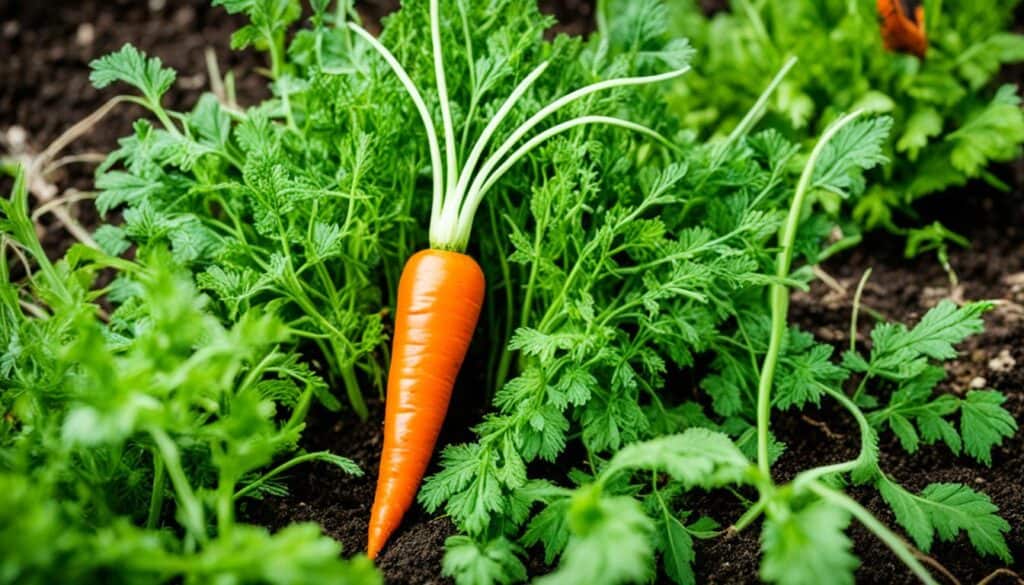
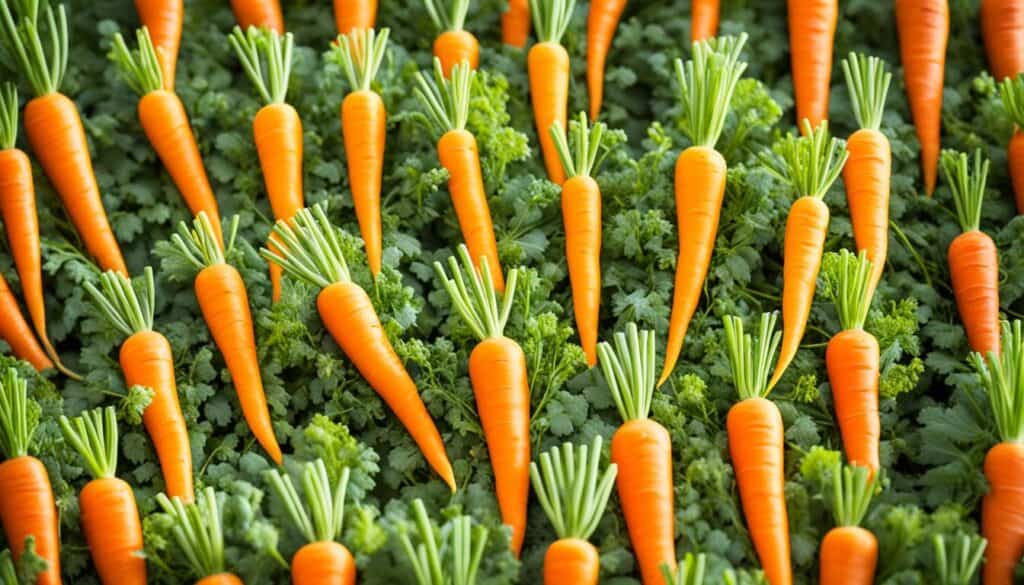
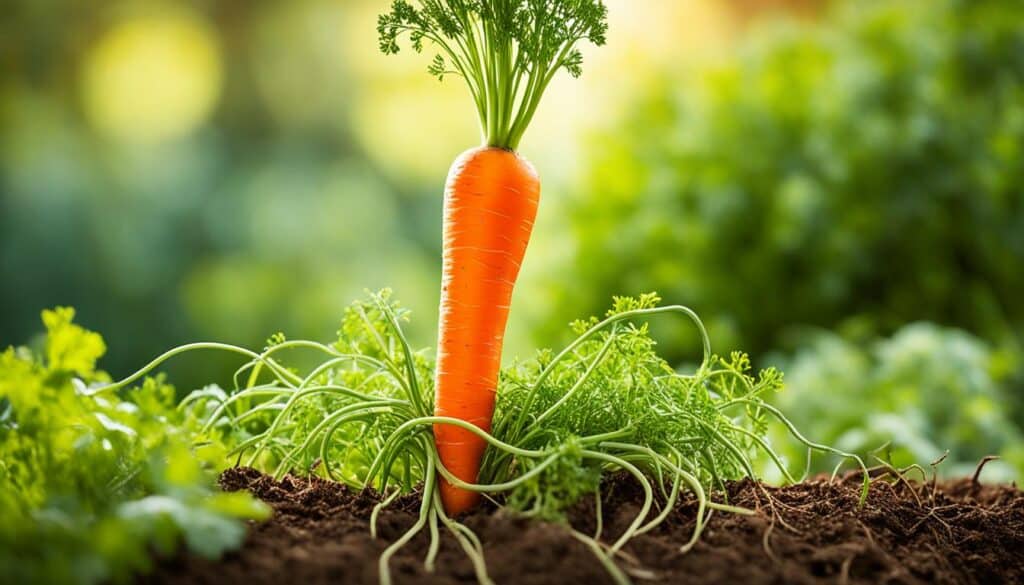
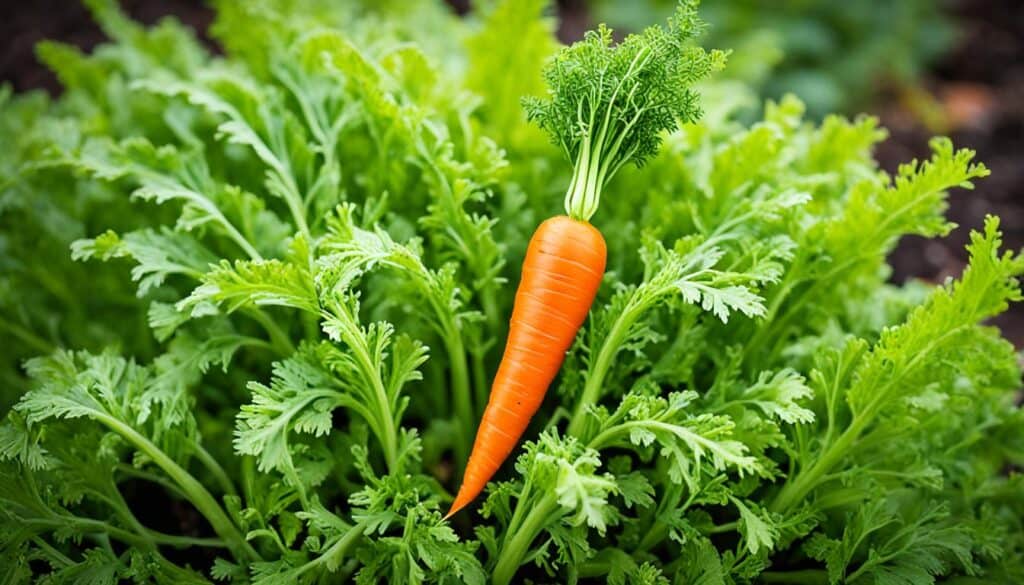
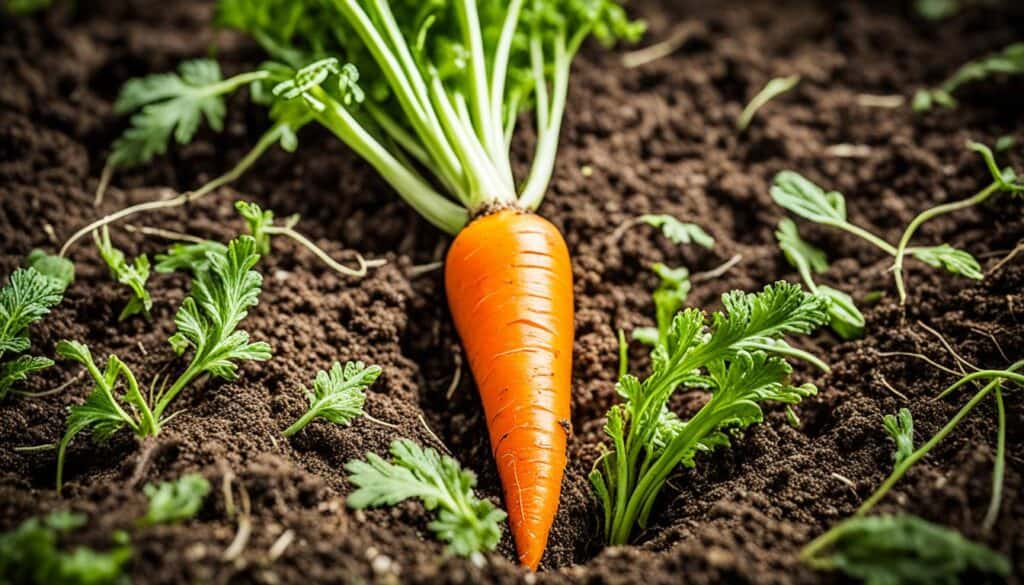



Leave a Reply